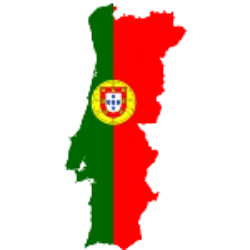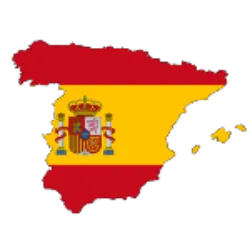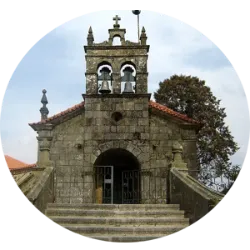Little-Known Facts About Portugal
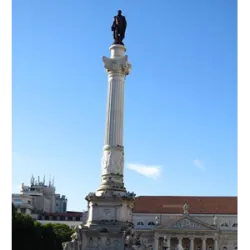
The Rossio Statue
Although everyone believes the statue represents D. Pedro IV, there is a myth that it was repurposed from another historical figure.
To prevent anyone from noticing, it was placed at the top of the column, out of public view.
This shows how urban legends can arise from seemingly small historical details.
Lisbon
Some buildings in the city date back to before 1143, the official founding year of Portugal.
They survived earthquakes, invasions, and changes of government over centuries.
This reveals the incredible resilience and historical richness of the Portuguese capital.
There Are Secret Tunnels Under Lisbon
Underground passages connect old convents, palaces, and military areas.
Many of these routes are closed or have never been fully mapped.
They served both for escape and logistics, showing a mysterious side of the city.
Portugal Once Banned Carnival
During certain conservative periods, Carnival was seen as a threat to public order.
The festivities were officially banned in some regions.
This shows how even popular traditions can become targets of political control.
The “Gold of Brazil”
Much of Brazil’s gold was sent to England, and only a fraction remained in Portugal, showing the complexity of the colonial economy.
Secret tunnels beneath Lisbon

Lisbon is not just built above ground. Over more than two thousand years, different civilizations have constructed underground structures that remain hidden to this day.
Origin of the tunnels
Romans: drainage galleries, aqueducts, and sewers.
Islamic period: passages used for escape and supply.
Middle Ages: corridors under convents, churches, and palaces.
Purpose
Escape routes during sieges and invasions
Discreet transport of people, weapons, and supplies
Secure communication between strategic buildings
Shelter during conflicts
Impact of the 1755 earthquake
Many tunnels collapsed or were buried
Pombaline reconstruction built the city over older structures
Original maps were lost, preventing complete mapping
Documented tunnels
Galleries of the Aqueduto das Águas Livres
Roman cryptoporticos in Baixa
Subterranean passages under former convents
The mysterious side
Reports of connections between the Castle and the Tagus River
Tunnels between palaces and military areas
Structures not yet officially cataloged
Why almost no one talks about it
Urban safety risks
Archaeological complexity
Simplified tourist narrative
Test yourself with one of these challenges 👇
Discover some interesting facts about Portugal Tourism
The Rossio Statue
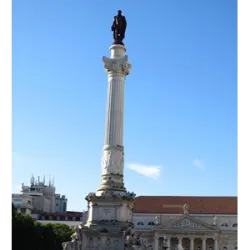
In the center of Lisbon, in Rossio Square, stands a column crowned by a statue attributed to Dom Pedro IV. At first glance, it appears to be a clear symbol of Portuguese liberalism. However, the story behind the sculpture is more curious than it seems.
Origin of the statue
Inaugurated in 1874
Officially dedicated to Dom Pedro IV
Cast in bronze and placed atop a tall column
The urban legend
There is a persistent myth that the statue does not represent Dom Pedro IV
It is believed the sculpture was reused from another historical figure
To avoid questioning, it was placed far from the public’s direct view
Why the doubt exists
Facial features do not match known portraits of the king
The crown and posture do not follow Portuguese iconographic standards
There is a lack of clear documentation about the original commission
Symbolism of the column
The pedestal represents the values of liberalism
Allegorical figures symbolize Justice, Wisdom, Strength, and Moderation
What this reveals
How urban legends arise from historical gaps
How monuments can be reinterpreted over time
The Portuguese Delight of Popular Festivals

Roasted sardines are a traditional dish in Portugal, especially during the festivals of popular saints. Originally from Sardinia, these sardines were essential for feeding rural families. Normally, they are seasoned with coarse salt, placing them on a double grill over the coals, without flame, roasting over low heat, normally accompanied by roasted peppers and boiled potatoes. They should be enjoyed by placing them on top of a thick slice of bread, allowing the bread to absorb the flavor and natural fat of the sardines.
The first legend of the Lady with the Crow's Feet originates from Beira Alta
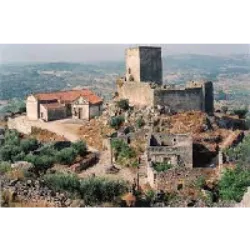
The first legend of the Lady with the Crow's Feet originates from Beira Alta, in the village of Marialva. She lived in a small castle and attracted many suitors due to her beauty. However, she challenged suitors to bring shoes that fit their feet as a condition of marrying her. A knight, with the help of a handmaid, created shoes molded to the shape of her feet, using flour on the ground to obtain the mold. When he handed over the shoes, she, horrified to learn that her secret was known, threw herself from the castle tower and mysteriously disappeared. This gave rise to the name of the village of Marialva.
Monument of Faith and Panoramic Beauty

Cristo Rei, located in Almada, on the south bank of the Tagus River, is one of the most iconic tourist attractions in Portugal. Inspired by Christ the Redeemer in Rio de Janeiro, the monument attracts visitors from all over the world thanks to its grandeur and the spectacular view of Lisbon it offers.
History and Symbolism
Opened in 1959, Cristo Rei was built as a vote of gratitude for Portugal being spared the direct horrors of World War II. The idea for its creation arose in 1934, after the cardinal-patriarch of Lisbon, Dom Manuel Gonçalves Cerejeira, visited Brazil and was impressed by Christ the Redeemer.
At 110 meters high, including the statue of Christ and the pedestal, the monument is one of the largest buildings in the country. The statue with open arms, designed by sculptor Francisco Franco de Sousa, symbolizes peace and welcome, while the chapel at the base is dedicated to the Sacred Heart of Jesus, reinforcing the spiritual value of the place.
Cultural and Religious Landmark
In addition to being a tourist destination, Cristo Rei is a point of religious pilgrimage. Its majestic presence in the landscape of Almada makes it a symbol of faith, gratitude and an invitation to contemplate the beauty and history of Portugal.
Portugal is a charming country and has a lot to offer visitors

Portugal is a charming country and has a lot to offer visitors. The capital of Portugal, Lisbon, is a vibrant city with a lot of history, culture, gastronomy and nightlife. Visitors can explore the historic center, São Jorge Castle, Jeronimos Monastery and Belém Tower. There are also many museums and art galleries to visit, as well as excellent restaurants and cafes. The city of Porto is the second largest city in Portugal and is famous for its port wine production. Visitors can take tours of the Port wine cellars, boat trips on the Douro River, explore the historic center and visit Torre dos Clérigos and Livraria Lello. Portugal has many beautiful beaches, especially in the Algarve region in the south of the country. Portuguese cuisine is diverse and delicious, with dishes such as cod, Portuguese stew and the famous custard tarts. Visitors can sample the food at many restaurants and cafes across the country.
Test yourself with one of these challenges 👇
HOME
